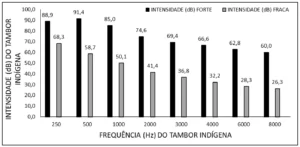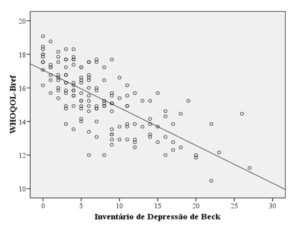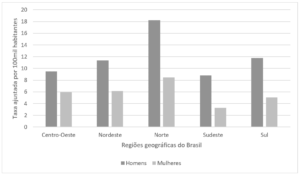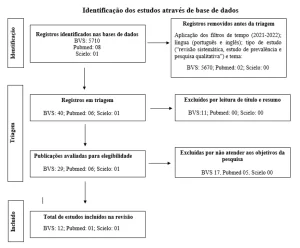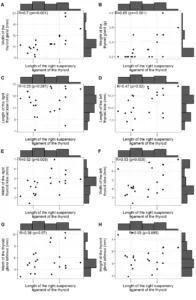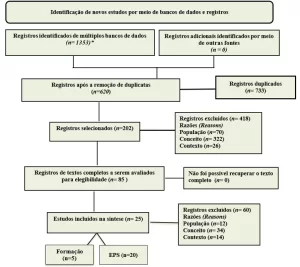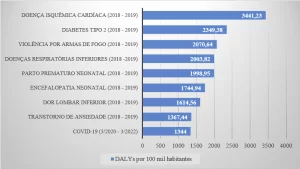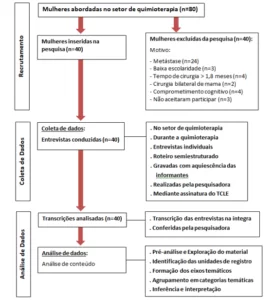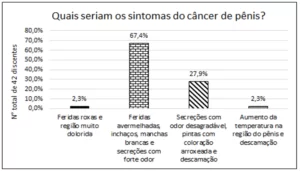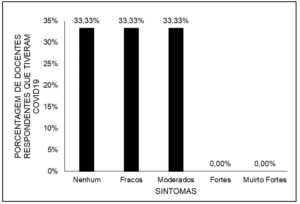SANTOS, Alan Ferreira dos [1]
SANTOS, Alan Ferreira dos – Epistemological crisis in the social sciences: The social functions of Theoretical Paradigms Multidisciplinary Core scientific journal of knowledge. Year 1. Vol. 6, pp. 15-27. August 2016. ISSN:0959-2448
SUMMARY
This article is proposed to discuss the issue of “epistemological crisis” in the social sciences. For this, we used a literature search. Put into question what would actually such crisis, understanding that the same has various explanations, not running out on only one factor, but understanding that there are lesser and greater intensity factors. Aimed to find the properties of “epistemological crisis”, its origin and its social impact. Finally, it was stressed that the phenomenon has a social function, with its impact on Science, being such a reflection of the crisis in social settings and not an instance-specific independent of the Academy.
Keywords: Epistemology. Paradigms. Crisis.
INTRODUCTION
Sociology is a field of study that they see growing since its early days, extending and branching in various areas of human knowledge. The Herald reported the history of Sociology was Auguste Comte (1798-1857) and later with the triad Émile Durkheim (1858-1917), Max Weber (1864-1920) and Karl Marx (1818-1883). It is obvious that we must not forget other sociologists who were of great importance to the establishment of the classical sociology as: Georg Simmel (1858-1918). Such sociologists are devoted to this day, by the fact that they not only founded the sociology, but also result in models of thought such as positivism, functionalism and materialism, which provides rich material for theoretical elaboration and the progression of thought.
From a period began to make criticism of the fundamentals and basic assumptions of Sociology (1) by the fact that there are various approaches (2) why the Multiplicities of theories they didn’t fully understand the increasingly complex society. Octavio Ianni, in his essay the crisis of paradigms in sociology-problems of explanation (1989), provides us with a vision of how the diversity of perspectives has been a concern among social scientists. He says that in several schools of thought already speaks in obsolescence of classical models, which do not correspond to contemporary reality, today the historical approach, global, holistic, systemic, structural, phenomenological, neofunctionalist ethnomethodological tradition, hermeneutics, the methodological individualism and others. The object of Sociology second such aspects should be the individual, identity, difference, and the rational choice (IANNI, 1989).
Ianni quotes several authors which proposes new perspectives as Bourricaud (1975) and Touraine (1984) proposed replacing the classic “universalizastes” models of large structures (macro social) in the interests of the individual, since such comprehensive conceptions were overcome due to the peculiarities of the century we live in. The proposal for this century is elected as object of Sociology social action, the social actor, the social movement and leave the system, the large, comprehensive concepts, macro vision of society. Why these notions correspond to a social reality, overcome, that no longer is object of Sociology (IANNI, 1989).
POSSIBLE SOLUTIONS
Some authors such as Pierre Bourdieu (1930-2002) represents the thought, that the new paradigms do not exclude the ancients, since these were the ones that gave rise to the present, the same will say Habermas (1929-present) in his theory of communicative action (1981). Modernity on account of its high complexity, causes the concepts of capitalism and industrialism of Marx and Weber, are criticized fiercely by Giddens (1938-present), which proposes new parameters and categories of analysis to the information:
Among the critics who are proposing new models, theories, or paradigms, the insistence on the idea that the object of Sociology changed. The classics would be supported by notions that, if reasonable in the past were no longer meet the peculiarities of the 20th century. While criticizing the notions of capitalism and industrialism, which would be important in the sociologies of Marx and Weber, Giddens underlines the “information”, “administrative power”, the “military power” to “war”, the “rationalisation” and others, such as basic aspects of “modernity” of the 20th century. (IANNI, 1989, p. 4).
Faced with so many approaches some thinkers developed answers to theoretical and conceptual problems:
And there are those who recognize that the creation of new paradigms don’t necessarily imply the disqualification of the other. After all, in the history of sociological thought, alongside the oppositions and ruptures, enroll also convergences and continuities. On the whole, discusses issues related to the method as the object of sociology. Discuss priorities, or accommodation with regard to quantitative and qualitative induction synchronic and diachronic analysis, the counterpoint of the parties with all, the dynamics and the social stability, the individual and society, to the objective and subjective. Gradually, they formulate new sociological theories such as structuralism (s), structural-functionalism, neofunctionalism, Phenomenology, ethnomethodology, hermeneutics, sociology of action or acionalismo, methodological individualism and others. Formulate other themes and other methods of explanation or understanding, while if inaugurara other languages. (IANNI, 1989, p. 5).
Boaventura Santos (1940-present) is one of them that says “the social experience around the world is much broader and varied than the scientific or philosophical Western tradition knows and considers important” (SANTOS, 2006, p. 2). To account for the experience that is not “captured by the Western tradition” is necessary to propose a model of rationality in opposition to the prevailing rationality model in recent centuries. To establish this right, which Santos called cosmopolitan reason, he brings us the three sociological procedures: the sociology of absence, of the emergency and the translation work. The three points of departure are: understanding of the world beyond the Western understanding of the world; This understanding is tied to conceptions of time and temporality; the Western conception of rationality is characterized by getting this transformed into a second elusive and expanding the future indefinitely. In this sense Salem will against, expanding and contracting the future gift to be able to “create the space and time necessary to know and value the inexhaustible social experience that is ongoing in the world today” (Ibid., p. 3). To expand this, he proposes a sociology of absences; to contract the future, a sociology of emergencies and to realize the diversity of social experiences that cannot be explained by a theory, proposes a global translation work procedure capable of creating a mutual intelligibility between experiences possible and available without destroying its identity “(Ibid., p. 4).
The sociology of absences has as aim to rescue the experiences considered nonexistent, give reality to them, make them facts, such as a possibility of knowledge and distinguish it and puts them side-by-side of the single and hegemonic considered experience. With that makes the upturn of reality, because increasing the field of experiences with credibility, resulting in dilation of the present, and the future constriction, expanding what is considered contemporary.
The sociology of emergencies is the investigation of the alternatives that fit on the horizon of the concrete possibilities “(Ibid., p. 24). If the sociology of absences expands the existing Royal gift what was subtracted by the dominant logic, the sociology of emergencies extends this by adding real broad possibilities and future expectations that he has inherent. Consists in carrying out symbolic enlargement of knowledge, practices and agents in order to identify them forward-looking ideas.
With regard to the procedure of this translation aims to create readability, coherence and coordination at the world experiences-both available as possible, revealed by the sociologies of absences and emergencies – a world enriched by the multiplicity and diversity. With that, Santos makes a link between the present and future aspects that sociological theories, usually attached to a common goal has as pretense, which ends up most often causing the future end in itself by dissolving the transformations of the present.
Bourdieu already States that the contradictions arising from the existence of several schools, with different methods and perspectives, are false oppositions, which has a social aim, but not an end. He exemplifies this, with oppositions between empirical and theoretical, that is, and objectivists or subjectivist between structuralism-which deals with objective, independent relations of consciences and individual wills-he states that “all these objections strike me as completely bogus and dangerous at the same time, because lead to mutilation” (BOURDIEU, 1987, p. 44).
Moving forward in sociological science shows that the current has great ambition and “the legitimate ways to practice it are extremely diverse” and that the reasons of the divisions or oppositions that are there as motivation and the fact that “sociologists seek to impose as the only legitimate way of doing sociology that is more accessible” are ideologies that justify the power of certain theories dominate over other, omitting the appearance of emerging concepts. For this reason Bourdieu defends the sociology of 2009 that would be a critical sociology itself or, being more specific, the researchers themselves, making it possible to see the limits of the occupants of the other positions and their own, with that one realizes that in fact the antagonism, masks the sociology unit that is “in that space of possible positions whose antagonism, seized as such , proposes the possibility of their own resilience “(Ibid., p. 45). With this Bourdieu says that criticism and contradictions, and existing conflicts are necessary for overcoming previous theories, because every moment of their legitimacy fought for intellectual concepts, promoting the variety and openness to new ideas, which will lead to other ideas and so on.
The disruption that has been happening constantly, are evaluated as common to the social sciences, and not as a “crisis” in the literal sense of the word, where is a kind of “cataclysm” Joana Brito de Lima (2013) gives us a clue and a possible solution with a philosophical direction, because the same hypothesis, is that the track the same way sociology of philosophy :
The paths traversed here show that the notion of crisis is common in times of disruptions and consolidation of new models of knowledge. […] The epistemological changes must offer a broader horizon through which sociology may rethink their bases. In other words, the Sociology inherited the evils originate in its Foundation due to the goal to overcome the philosophical methods (metaphysics) from Philosophy, without, however, accompany the criticism that his own Philosophy turned against itself. In other words, the solution of the epistemological controversy of Sociology can be found precisely where, initially, your search was barred: the philosophical foundations and current perspectives and interpretations in various non-consensual. Finally, and without wishing to exhaustive, possible sociological transvaluation allows face disputes for legitimation of knowledge and uncover the assumptions of the discourses that claim objectivity and truthfulness on the infinite and fictitious human creations. […] the different research benchmarks exist simultaneously and indicate theoretical choices defended by each author, generating results that might be faced in discussions. ” (DE LIMA, 2013, p. 13).
The radical transformations that occurs in sociology, generates a concussion in the “know” implying a deteriorated old models, where he would explain, an object description:
The most important here, insist on the fact that every crisis in sociology, regardless of his correspondence with social crises which were replicas, always report the problem of explanation: or he intended to explain too much, or who has given false explanations, or if too much reduces the explanation in favor of a simple observation, or – as in the empirical investigations of today , especially in the United States and among the French of American imitators – has almost completely given up the explanation, turning, at best, sociology in sociografia “(Gurvitch, 1986, p. 525-526 apud IANNI, 1989, p. 6).
Ianni justifies that change occurred over time, not in the society itself or in its essence, but part of it. The object that Marx and Weber researched changed, but still has its essentiality, the work is there, the power relations and the economic distribution. Therefore the main concepts of these sociologists, or rather the structuring concepts of his theories are in force, however should be reformulated, because in the same way that physics, biology, as the years went by incorporating previous research, sociology would do the same, why the object in essence continues, but with ramifications carnal temptations to be unveiled:
[…] the bourgeois society, industrial, capitalist, or modern computers, changes over time. But save some essential characteristics. Is different and the same. […] The world formed with the modern, industrial, capitalist society is not the same in the 19th and 20th centuries. Substantially modified, is computerized. The media, in a broad sense, revolutionized the conditions of production, distribution, trade and consumption, in material and spiritual terms. Public and private bureaucracies have amplified your RADIUS of action, influence, induction. Everything changed. But much remains, even if recreated, necessarily recreated. In essence, the modern bourgeois society, it is based on certain principles that reiterate throughout history. Neither science nor the technique, or computers, changed the essential nature of relationships, processes and structures of ownership or distribution, of domination or power (IANNI, 1989, p. 8-9).
According to Nobert Elias in Written State tests, process &, public opinion (2006) it says “the traditional structure of concepts is unsatisfying for sociology. The relationship between two interconnected human processes d[…]oes not fit in the traditional scheme of causal relationships “(ELIAS, 2006, p. 40). Another metaphor that expresses your thought is “many tangled wires” or how he stresses “the interlacing of the spheres is a complex problem that we need to find a source or a relationship of cause and effect in the blurred vision” and more:
We could also think about, for example, that the economic development plays the central role, from which derives the rest. But I believe, as I said before, that the facts do not support this simple model. The interaction of the various partial processes is complex and has no starting point. I can’t offer the reader, not with all my goodwill, a new fundamental process that satisfies the need of an ideological cause. (Ibid., p. 46).
With the theoretical statement cited above, who tried to develop a new line of thinking that interferes with the reality and the plays, not just in a way, that is, from the micro to the macro or vice versa, but understanding the reality for a focus of multiple perspectives and a reality not simple, but complex, full of connotations, of bias that should be clarified and not omitted by a totalizing perspective or even drowned out by generalizantes theories have the intention not to do synonymy with theories, compare them or reduce the concepts to each other, but yes, as Edgar Morin in the need for a Complex Thinking (2003) […]”it is not a matter of destroying the disciplines, but to integrate them, gather them together so we can get out of a fragmented vision, which causes remain invisible to many problems” (MORIN , 2003, p. 69). According to sociologist, fragmented disciplines prevent a context for which should converge the sciences, and especially about the human identity. Morin says “intelligence splitted, compartmentalized, disjunctive, reductionist, mechanistic, destroys the complexity of the world in different fragments, fractionates problems, separates what is attached, the multidimensional unidimensionaliza” (MORIN, 2003, p. 69). Therefore, it is not to find the “real”, but rather to understand the specificities of the social being’s immersion in her reality are multiple and interconnected. Unilateral thinking is biased and tends to meet certain intentions who produces. Distance himself from the bias and work with a dynamic phenomenon encompassing all aspects is the challenge of contemporary science.
In an essay of Abid Son entitled “Transdisciplinarity and post-disciplinary approach paradigm in health” (2005), the author mentions several characters from the global scene who work on transdisciplinary perspective, for example Wiener, Von Bertallanfy, Prigogine, Thom, Boulding, Maturana, Simon, Atlan, Lorenz, Morin-proposals which have been unified under the name of paradigm of complexity. The grouping such proposals is the idea of complexity, is the premise that scientific research must respect the complexity inherent in the processes of nature, history and society. Almeida Filho says that “the conventional organization of science in autonomous and watertight disciplines need to be overcome by new forms of scientific praxis” (ALMEIDA, 2005, p. 38).
However, what occurs in the field of interdisciplinarity is problematic, because there is a reversal of the proposed, instead of uniting knowledge and make it solid for identification of phenomena and even the motley Union (Science), she has:
[…] led us to treat the question of interdisciplinarity within an optical fenomênica, abstract and arbitrary. Appears as a didactic resource able to integrate, gather the private dimensions of the different scientific fields or different knowledge in a harmonic whole. There is, within this Prism didatista any problem doing-if, in the words of Lefevre, methodological soup. It is a kind of fetish of concepts which consists of assigning a meaning themselves. The confrontation of this problem has been, most of the times, in search of new words like transdisciplinarity or dichotomies quantitative and qualitative research, research, research-action. The question that we want to point out here is that changing the prefix inter by trans or the false dichotomy quantity/quality, not elide the problem of opaque character and alienador of the social reality that we reviewed. (FRIGOTTO, 1995, p. 52-53).
And States that this new design, has an intentionality and meets with a social function:
We must insist that this integrationist vision and neutral knowledge and interdisciplinarity-what is dominant among us-is not fortuitous and so little fruit of scientific development delay. Is, on the contrary-consciously or unconsciously-a cultural, ideological and specific way of conceiving scientific reality, to represent it and act in concrete social history. Kosik calls this form of apprehension of reality of metaphysics of culture, or theory of the factors. Various aspects of the social complex turn into particular categories and independent; and isolated moments of social activity of man-the law, morality, politics, economy-become the human mind in independent forces which determine the activity of man. After every aspect of the social complex have been so isolated and turned into abstraction, investigates the connection between each other the various aspects, for example, the conditioning of the right by the economic factor. (…) The synthesis operated with such metaphysical abstractions is therefore outside, and the mutual connection between the abstract factors related is just formal or mechanically (KOSIK, k. 1978, p. 100-101 apud FRIGOTTO, 1995, p. 55).
A solution is, in which the cited subject should spell out their theoretical positions and not sublimá them, what can somehow, cause the eclecticism, just by the fact of there being no apparent conflict, when in fact the same exist and are necessary for the promotion, production, development and overcoming knowledge and even to dispose of baseless assumptions:
We have developed a culture that sidesteps the conflict and crises, even though society alive in deep conflict and crisis. Dilute the capital-labor conflict by paternalistic strategies. Minimizes itself to social inequality and the profound racial discrimination. The apology to the consensus, conciliation and harmony. […] On intellectual plan, that interests us, above all, in this discussion, this cultural matrix is manifested by a clutch of uprooting and eclecticism. (FRIGOTTO, 1995, p. 57).
This position is in the latent current thinking, authors such as Sérgio Buarque de Holanda already realized their misses, but understood as a national characteristic:
The eclectic attitude is both product and strengthening both the uprooting and the apologia conciliation and harmony. Sérgio Buarque de Holanda observes in this regard be frequent “among Brazilians that assume intellectuals, the ease with which feed at the same time of doctrines of various hues and supporting both the most disparate beliefs” (HOLLAND, S.B. 1936 apud FRIGOTTO, 1995, p. 57).
Others realize:
One of the constants of the Brazilian intellectual system: the feeling, naïve or fraudulent, as the case may be, that have their participants not to belong to any social group, they were as loose in the space of social interests (COSTA, LIMA 1981 apud FRIGOTTO, 1995, p. 57).
Ideas like these, tend to have an intention:
These strong cultural traits marked by eclecticism clarifies, on the other hand, by the belief that the apprehension of truth of social facts impartially results “of a mosaic assembled from numerous thinkers, which in addition to rid us of the dangers of the systems would allow us an undefined enrichment taking advantage of each system the best (GOMES, r. 1980 apud FRIGOTTO, 1995 , p. 57).
Authors in the case, as FRIGOTTO (1995) and FACES (2014) has the position that the multiplicity of emerging theories are actually a reflection of contemporary society and therefore comply with an ideological function:
Konder shows us that this adversarial path was already pointed out by Gramsci for 60 years. “In the scientific discussion, since it assumes that interest is the search for truth and the progress of science, proves to be more advanced that adopting the view that the opponent can express a requirement that must be incorporated, albeit as a subordinate, the actual construction time”. If this is a proper direction, it becomes clear that the precondition for the interdisciplinary work, both in terms of research as in the pedagogical work, is that the conceptions of reality, knowledge and assumptions and categories of analysis are critically explained. The democratic and plural coexistence required in any human space, particularly desirable in research and educational institutions, does not imply the artificial joint, bureaucratic and false of researchers or professors who objectively are in theoretical conceptions and ideological, and politically diverse. Forced dilution of conflict and diversity did not help the advancement of knowledge and not the democratic practice (FRIGOTTO, 1995, p. 58).
The constant renewal of thought, understanding the historical determinants would be needed to start at least take a critical stance:
Overcoming these challenges will certainly imply the ability to act within the dialectic of the old and the new, the critique of the fragmentary form of production of human life in all its dimensions and, specifically in the production and socialization of knowledge and in the construction of new social relationships that break with exclusion and alienation (FRIGOTTO, 1995, p. 60).
To Kosik, on the contrary, it is a form of production of reality and representation at the level of knowledge in society. The Division, exclusion and fragmentation are constituent parts in the material plane and the plane of knowledge of this form of social production relation of human existence. […] The fragmentary, linear way of thinking produces knowledge transformed into action has numerous practical problems to all of mankind (FRIGOTOO, 1995, p. 54).
[…] the crisis of the social sciences is inseparable from the crisis of the entire world and that this has on the economy, understood as the set of relations that men establish among themselves in production, your array. In this way, the crisis of the social sciences, would be understood as the expression, in the form of the sphere of science, the global crisis that shakes the world today. This, in our view, is the proper way to understand the situation of the social sciences at the moment (TANITH, 2014, p. 7).
FINAL CONSIDERATIONS
As described, we saw that the “epistemological crisis” has several causes. The article set out to demonstrate how this phenomenon can be understood not only as an independent body, but rather as a social cause, being of social origin, affecting all sectors of society. Social relations is the fundamental cause of such a move, the bureaucratization, the technique and the historic, rationalization process produces various intransigent areas, where individuals compartmentalized by sectors, produces intensely knowledge in just one line of thought, with a buildup and lack of relationship between such Sciences:
According to the title of Weber, the formal rationality is formed by calculabilidade and predictability of the legal and economic systems. In the field of organizations, the formal rationality is present in devices like the accounting and bureaucratic. Implies rules, hierarchies, specialization, training (ROBERTO THIRY-CHERQUES, 2009, p. 899).
In this sense, determined search technique, which previously was part of a general study for seizure of a given object, it becomes a specialized sector and studies increasingly equated with such devices, such as: Demographics, interviews, case study, observation, research and social representations and others, equality. In the case of demography and social representations were required to research techniques, today are legitimised Sciences, working with a purpose only to obtain demographic data and the second, representing the most varied objects, the problem lies not in its delimitation as a field, but yes in the generational and consequences at this point have advanced a step of the analysis. As seen earlier, the problem is when it becomes the representation of the object a “Science” and not part of her constituent, which carries on generalization of an object representation, as a general phenomenon, the same is true for the demographic data, make an interpretation based on demographic data removed from other devices, is to give a different slant to the phenomenon than it is in itself in its essentiality.
From that we strengthen the creation lines of thoughts, which in an accumulation of information, amounting to a science status and no longer of investigative technique or informational data. For this angle, we develop interpretive theories on a single given, with the corollary “epistemologies”. Such repercussions are natural processes resulting from the industrialization process, analogous to what occurs in the Assembly line, with the slicers, generating increased productivity in less time, and a smaller amount. This is nothing more, than use of a psychological cause (of thought), in favour of high production, with individuals in only a single “treadmill” of reflection.
The production is increased by the fact that individual to fulfill a single activity constantly, and besides, such is less expensive, because intellectual opposite would be, a guy with comprehensive knowledge, with more study time and therefore greater spending, let’s see for example Marx:
Advancing critically from the accumulated knowledge, Marx undertook the analysis of bourgeois society, with the aim of discovering its structure and its dynamics. This analysis, which began in the second half of the years 1840, configures a long theoretical elaboration process, in the course of which Marx was progressively determining the appropriate method to true knowledge, true, the social reality (MANDEL .1968). This means, simply, that the method of Marx not abrupt or discoveries of great intuitions – on the contrary, the result of a lengthy investigation: in fact, it is only after almost fifteen years of their initial research which Marx formula accurately the central elements of his method, which appears in the “Introduction”, written in 1857, the manuscripts which, published posthumously , were titled fundamental Elements to the critique of political economy […]is in these few pages which are synthesized the method that enabled the analysis contained in the capital and the Foundation of Marx’s social theory (NETTO, 2009, p. 4).
So as we see, the first 15 years were the initial research, to make the thesis that will culminate in the “Capital”, noting that the date of publication of the same was in 1867. Are 25 years of incessant studies, it is worth mentioning that what was searched for Marx, no one had searched, this is an important detail because the elapsed time of study was of an unknown object, that is, it had to create what we call social theory.
The final caveats, is that such “epistemologies” has a purpose, an ideological function, comply with a purpose, but it is social in origin and not an independent-specific to a field of academia, is a global phenomenon that reaches with greater force the Humanities on account of their specific characteristics, taking compromising social impact because it becomes difficult to find the determinants of given object because the multiplicity of theories. Capitalist production relations extend the all spheres of human relationships, not getting away with it the field of knowledge, the technological sciences develop instruments for the capital, the same occurs in the humanities in General, being the theoretical paradigms a reflection of established social setting, and therefore, an ideology of maintaining the current society that occurs in its epicenter.
BIBLIOGRAPHICAL REFERENCE
ALMEIDA FILHO, Panel Was Attended By Naomar. “Transdisciplinarity and post-disciplinary approach paradigm in health”. in health and society. v. 11, no. 3, p. 30-50, set-10 2005.
BOURDIEU, Pierre. The economics of Symbolic Exchanges. Pref. Sergio Miceli. São Paulo: perspective, 1987.
BOURDIEU, Pierre. Things Said. São Paulo: Brasiliense, 1987.
DE LIMA, Joana Brito. Perspectives and controversies of Sociology: paradigmatic or epistemological diversity crisis?. Magazine Inter-Legere, n. 8, 2013.
ELIAS, Norbert. Written Test – 1 &. State, process, public opinion. Organization and presentation of Federico Neiburg and Leopold Waizbort. Rio de Janeiro: Zahar, 2006.
FRIGOTTO, Gaudentius. The interdisciplinarity as a necessity and as a problem in the social sciences. Interdisciplinarity: in addition to the philosophy of the subject. Petrópolis: Vozes, 1995.
IANNI, Octavio. The crisis of paradigms in sociology – problems of explanation. In Brazilian Journal of social sciences. No 13 Year 5, June 1989.
MORIN, Edgar. The need for a complex thought. In: MENDES, CANDIDO (org); LARRETA, Enrique (ed.). Representation and Complexity. Trad. Mark Long. Rio de Janeiro: Garamond, 2003.
NETTO, José Paulo. Introduction to the method of social theory. Social Services: social rights and professional skills. Brasilia: CFESS/ABEPSS, 2009.
ROBERT THIRY-CHERQUES, Hermano. Max Weber: rationalization and disenchantment of labor in contemporary organizations. RAP — rio de Janeiro, v. 43, n. 4, p. 897-918, 2009.
SANTOS, Boaventura de Souza. For a sociology of absences and a sociology of emergencies. In: Barrier, Caesar. Sociology and knowledge across borders. Porto Alegre: Take Editorial, 2006.
TANITH, Ivo. The crisis of the social sciences. 2014. Social Service Magazine.
[1] Degree in psychology from the University of São Paulo.
